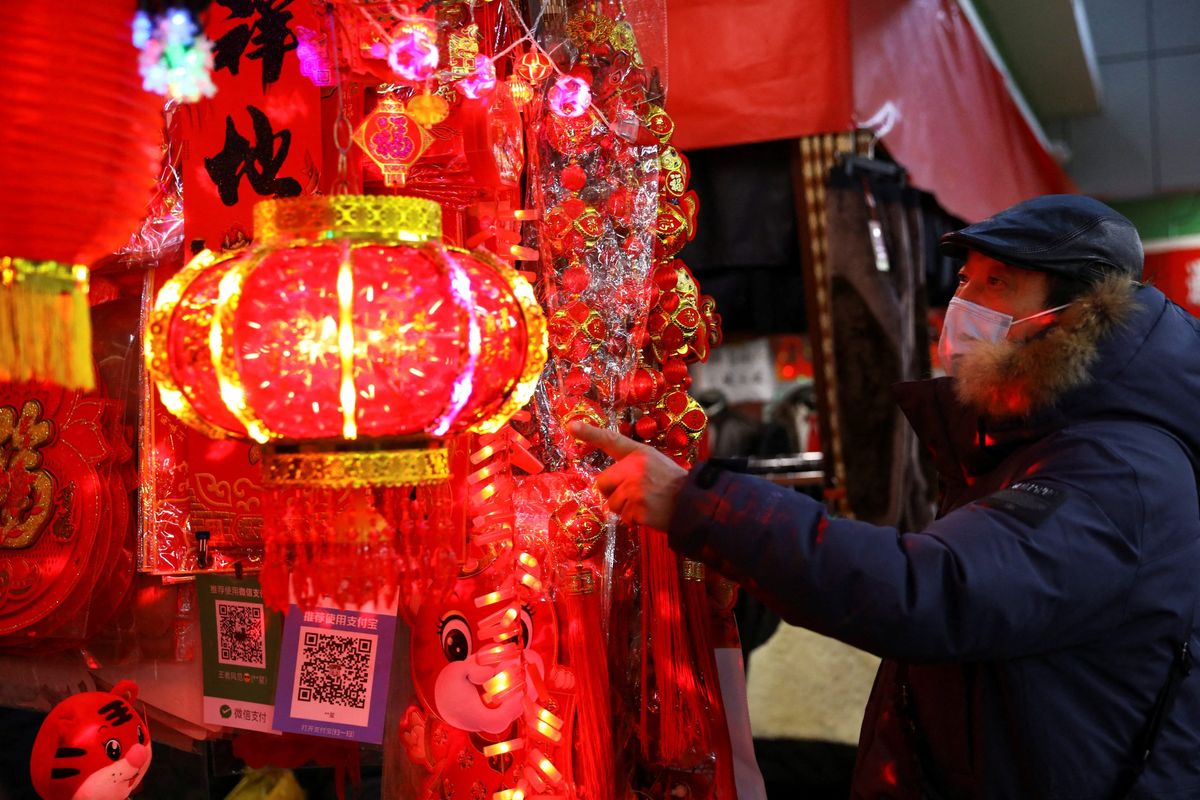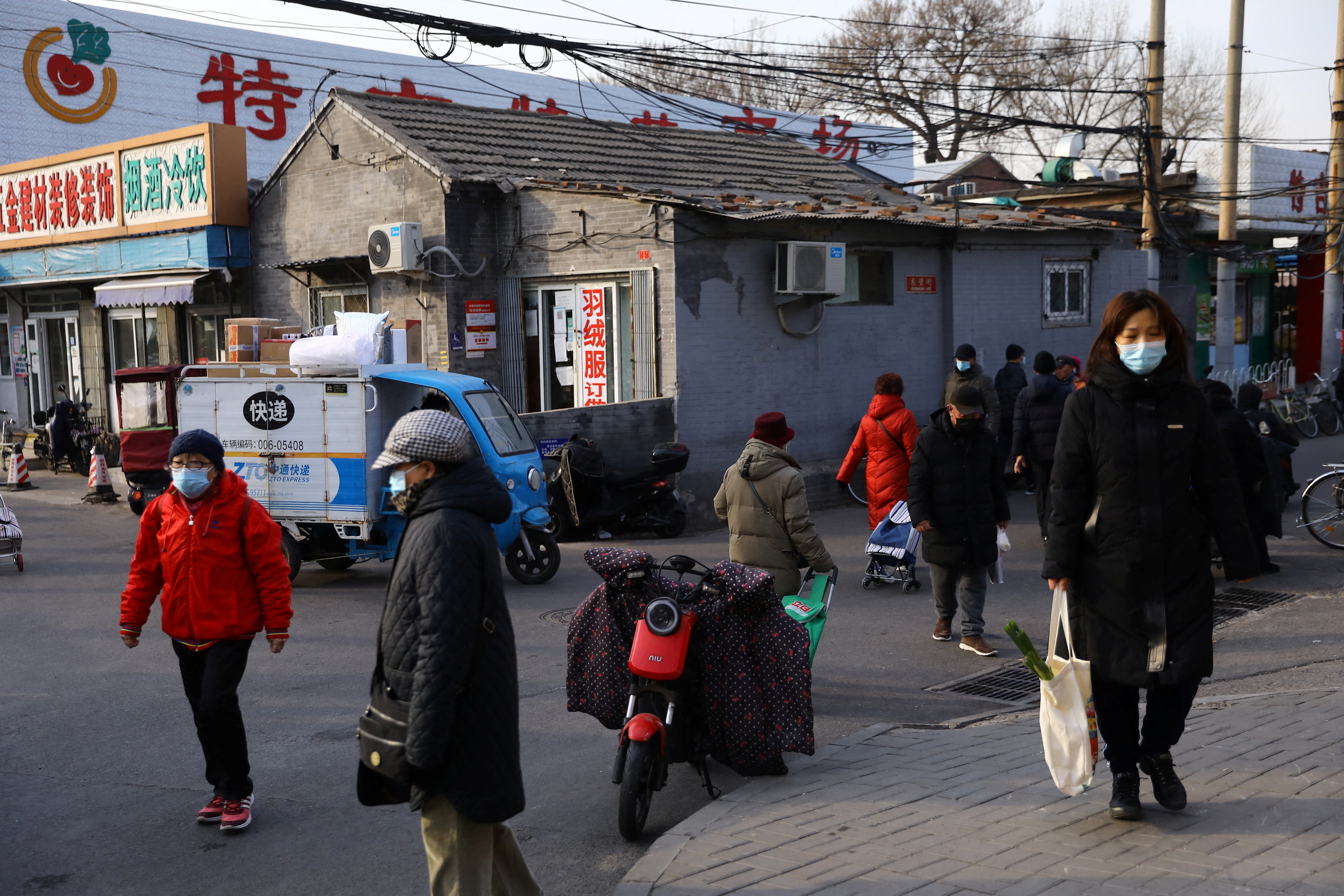China’s central bank cut rates for the first time in two years, while Xi calls for steady economic recovery

A few minutes every morning is all you need.
Stay up to date on the world's Headlines and Human Stories. It's fun, it's factual, it's fluff-free.
On Monday, China’s National Bureau of Statistics (NBS) reports revealed that the economy grew 8.1% in 2021 – its greatest expansion since 2011 – and faster than its forecast 8.0%. The growth was well above a government target of “above 6%," supported by the nation’s exports.
What happened with China’s economy during the pandemic?
- In 2020, when the COVID-19 pandemic hit, China recorded its weakest growth in nearly four and a half decades because of nationwide lockdowns, which saw its economy shrink 6.8%.
- But then, the economy rebounded faster than any other major economy in the world and recorded an eye-popping 18.1% in gross domestic product (GDP) growth in the first quarter of 2021.
- From there, the second and third quarter saw growth of 7.9% and 4.9%, respectively.
What happened?

- Many have been waiting to see what the Chinese government would do with its interest rates, with the slump of the real estate sector (which makes up a quarter of its GDP) and domestic consumption affected by several outbreaks across the country.
- On Monday, China’s National Bureau of Statistics (NBS) reports revealed that the economy grew 8.1% in 2021 – its greatest expansion since 2011 – faster than its forecast 8.0%. The growth was well above a government target of “above 6%," supported by the nation’s exports.
- But due to the real estate sector downturn and weakening domestic consumption due to COVID-19 outbreaks across the country, the growth slowed in the fourth quarter at 4% – the weakest in one-and-half years.
- The country also saw its birth rate drop last year to a record low of 7.52 per 1,000 people. This comes after the policy change in 2021 allowing couples to have three children.
- “At present, the downward pressure on China’s economy is still relatively big, and growth of residents’ employment and income is restricted," said Ning Jizhe, the head of the NBS, at a news conference.
- With this, China’s central bank cut rates for the first time in two years. This is as other central banks have moved toward tightening their monetary policies to fight record-high inflation levels.
What has President Xi said about it?
- At a World Economic Forum (WEF) event on Monday, President Xi Jinping said that the overall economic performance was sound.
- “The fundamentals of the Chinese economy are unchanged – it remains resilient, has sufficient potential and its long-term prospects are positive,” Xi said.
- He also urged nations to secure global supply chains and prevent inflation shocks to promote global economic recovery. “We need to resolve various risks and promote the steady recovery of the world economy. The global industrial and supply chains have been disrupted. Commodity prices continue to rise. Energy supply remains tight. These risks compound one another and heighten the uncertainty about the economic recovery,” he said.
- Xi also warned against sudden pivots in fiscal and monetary policies among other governments and called for coordination on global economic policy.
- “We should coordinate the targets, intensity and rhythm of fiscal and monetary policies, and major developed countries should control the spillover effects of their policies to avoid shocks to developing countries.”
- Speaking to state-owned media outlet Global Times, experts said that outbreaks of the omicron variant, as well as the delta variant, may lead to lower domestic consumption in the first quarter of 2022, but less so in the second quarter of the year.
What’s next?
- A report issued by the Chinese Academy of Sciences said that China’s GDP growth is projected to moderate at around 5.5% this year. The central bank is expected to continue easing monetary policy throughout 2022.
- However, some of the things that will need to be monitered include the country’s huge property sector and whether its current cash problems ease into the year, domestic consumption (which is largely based on the containment of the virus) and whether the country can maintain its export growth numbers.
- This is while, in the background, the Chinese government is pushing through with its strict zero-COVID stance.
You drive the stories at TMS. DM us which headline you want us to explain, or email us.







Comments ()